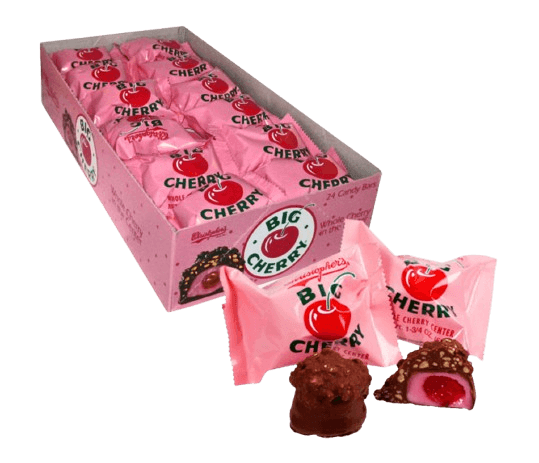The Big Cherry candy has a nostalgic legacy rooted in American confectionery history. While exact origins are debated, it is widely recognized as a product of Adams & Brooks, Inc., a California-based candy company established in 1932. The candy itself is believed to have emerged around that time or shortly after, aligning with the company’s early focus on innovative treats. Big Cherry features a whole maraschino cherry at its core, surrounded by a sweet cherry-flavored cream, coated in a chocolate-like shell (often made with partially hydrogenated oils rather than pure chocolate), and sprinkled with chopped peanuts for crunch. This combination made it a standout in the era of classic candy bars.
Originally marketed as “Christopher’s Big Cherry” (a nod to a possible brand or founder influence), it gained traction as a retro treat, evoking simpler times. By the mid-20th century, it was a familiar sight in drugstores, candy counters, and gas stations, particularly on the West Coast. Though not as nationally dominant as some contemporaries like Cherry Mash (introduced in 1918 by the Chase Candy Company), Big Cherry carved out a loyal following. Its enduring appeal lies in its bold flavors and textures, despite occasional critiques of its modest cherry size or artificial coating. Today, it remains a cherished, if niche, piece of candy history, still produced and enjoyed by fans of vintage sweets.



Reviews
There are no reviews yet.